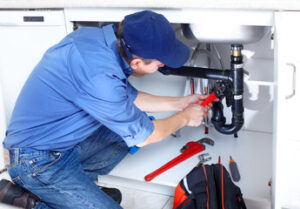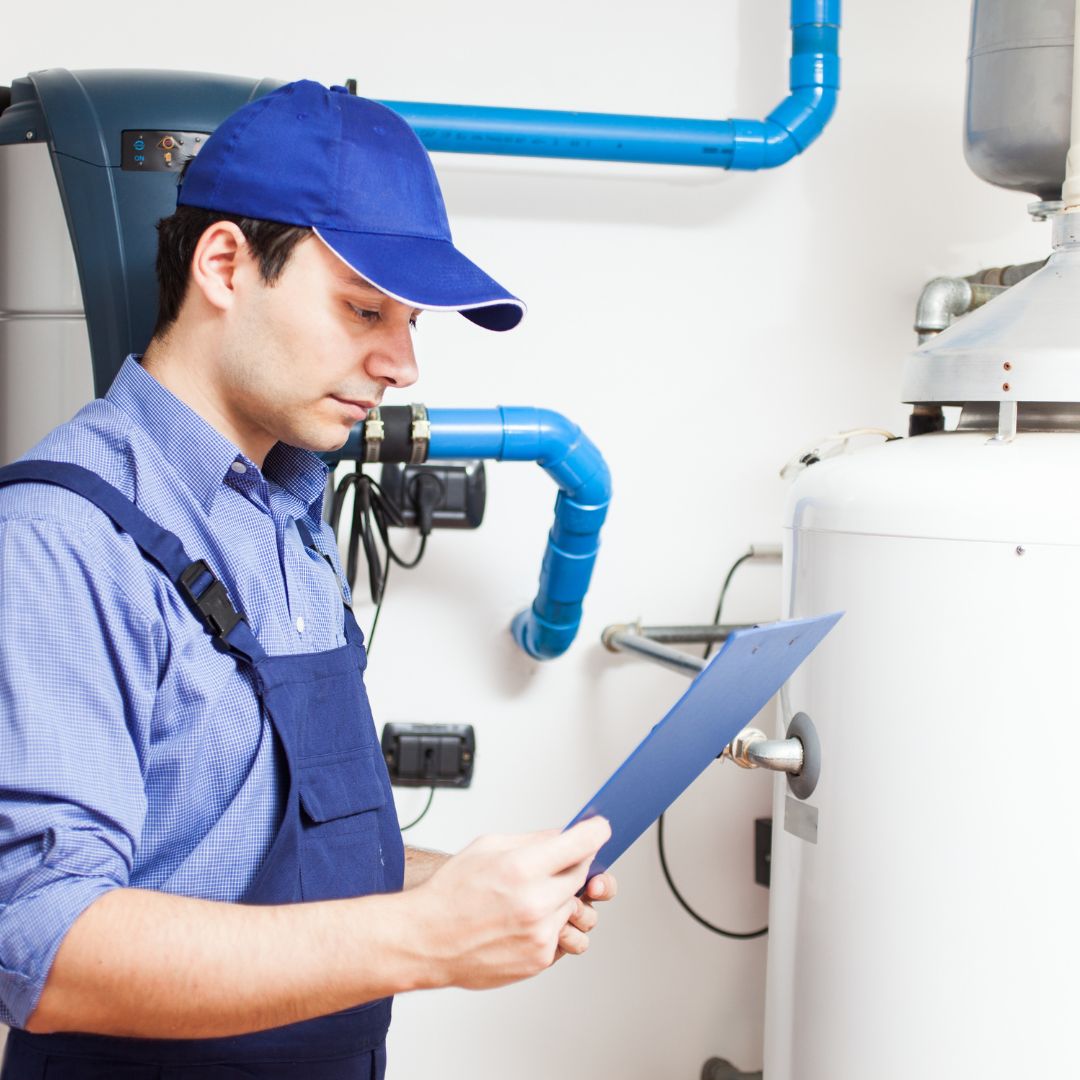Plumbers install and repair the pipes that deliver water, gas, and sewage to and from homes and businesses. They also install plumbing fixtures like sinks and toilets and may work on new construction projects or renovations.
Successful plumbers have a mix of technical knowledge, practical skills, and problem-solving abilities. They also need physical stamina to work in tight spaces and use heavy tools. For more information, click the link https://www.prescherplumbing.com/ provided to proceed.

Plumbing systems are essential to homes and businesses, removing waste water, delivering fresh water, heating and cooling water, and regulating indoor climate. Plumbers install, repair, and maintain these vital systems. They use their technical knowledge, practical skills, and critical thinking abilities to ensure that pipes, fixtures, appliances, and drains function properly. In addition to repairing and replacing broken or worn parts, they also inspect the condition of existing systems to identify potential problems and violations of building codes.
Plumbing installation services include installing new pipes and fixtures. When a customer wants to add a sink, toilet, or tub, the plumber determines the square footage needed and whether the existing piping can accommodate the new fixture. If the piping needs to be replaced, the plumber makes the necessary measurements and cuts. Then, they connect the new fixture and test it for leaks. The plumber may also recommend other upgrades to improve the plumbing system’s efficiency, such as high-efficiency water heaters or water filtration systems.
The plumbing industry uses various materials for piping, including copper, PVC, and PEX. Each has its advantages and disadvantages. For example, copper is durable and resists corrosion but can be more expensive than other options. PVC is affordable and flexible but can crack or become brittle over time. PEX is a relatively new material that offers the benefits of both PVC and copper, including resistance to temperature changes and corrosive chemicals. Plumbers must know the pros and cons of each material to make recommendations that best suit a customer’s needs.
Most plumbers have an apprenticeship, which lasts four to five years and includes classroom instruction and on-the-job training. Once they have completed their apprenticeship, they must pass a state exam to receive their license. Some plumbers choose to continue their education by earning specialty certifications in specific areas of the field. For instance, a plumber may be certified to work on backflow prevention systems or install green plumbing solutions.
Regular maintenance on your plumbing systems helps keep them in good condition and prevents the need for costly repairs in the future. Plumbers can help you ensure that your water heater, drain pipes, and other fixtures are functioning properly by inspecting them for leaks or other problems. They can also provide advice and recommendations on how to improve your home’s plumbing. In addition to repairing existing systems, plumbers can install new plumbing systems in construction or renovation projects. This requires them to be knowledgeable about building codes and regulations and how to read blueprints. Plumbers use various tools and equipment to perform their jobs, including wrenches, pipe cutters, soldering equipment, power tools, and inspection cameras. They must also be familiar with safety protocols when working in confined spaces or around hazardous materials.
Plumbing is a skilled trade that requires a high school diploma or equivalent and extensive on-the-job training. Many plumbers learn their trade through an apprenticeship, which combines classroom instruction with paid on-the-job training. Others attend vocational or technical schools that offer programs specifically designed for the plumbing industry. After completing their education and training, plumbers must pass state or national exams to become licensed.
The most important skill required for plumbers is the ability to solve problems and make effective repairs. They must be able to interpret a client’s description of the issue and determine the best course of action to take. This may involve identifying and locating the source of the problem, testing for leaks, or clearing blocked pipes. Plumbers must also work effectively with others and communicate clearly with customers.
Plumbing is a complex and rewarding career providing essential residential and commercial property services. Plumbers can help you with various issues, from installing faucets and toilets to repairing clogged drains and sewer lines. They can also help you improve your home’s energy efficiency by ensuring all your appliances function properly and reducing the risk of leaks or other problems. In addition, they can help you choose and maintain the right type of plumbing system for your needs and budget.
A plumber is a tradesperson who repairs systems used for water, sewage, and heating. Their work can include anything from fixing toilets to replacing old corroded pipes. They use a wide range of tools and equipment to do their job. The most common repair service is for clogged drains. This is a frequent problem in households, often leading to severe water damage if left unattended. Plumbers can use high-powered drain cleaners to clear clogs quickly and effectively. They also offer other services to keep drains clean, such as regular maintenance.
Another important plumbing repair is fixing leaky pipes. Worn-out washers, loose joints, or corrosion can cause these. A plumber can replace the damaged section of pipe and install a new one, which will stop any further leaks. Plumbers can also repair faucets, showerheads, and water heaters. The cost of these repairs will vary depending on the type and severity of the repair required.
If you are experiencing any of these problems, it is recommended that you call a plumber immediately. They can diagnose the problem and recommend the best course of action. Usually, a plumber can fix the issue on the same day. Some of the more expensive repairs may require a longer time to complete, so it is important to know what to expect when hiring a plumber.
Plumbers are a necessity in any household or commercial space. They provide vital services that help us lead a comfortable life. Most people only hire a plumber when facing a crisis, but it is better to get them in for regular checks and inspections to fix any issues before they become worse.
In addition to their technical skills, plumbers have soft skills that help them build rapport with customers and understand their concerns. They are trained to listen to their customers and identify the root cause of the problem. This helps them come up with solutions that are both effective and long-lasting. In addition, they are licensed to work in the field, so you can be confident that they have the necessary skills and knowledge to do the job well.
Regardless of how well you maintain your plumbing system, problems can still arise. When this happens, you need a plumber who can troubleshoot and make the necessary repairs. Some common plumbing problems include dripping faucets, clogged drains, leaky pipes, and water heater issues. While some of these issues may seem minor, they can lead to significant damage if not addressed immediately. This is why it’s important to know when to call a plumber and not try to fix the problem alone.
To diagnose and solve these problems, plumbers use various tools and techniques. For example, they may use video cameras to inspect the interior of pipes and identify any obstructions or damage. They also use pressure gauges to test for leaks and other factors that could be causing a problem. Plumbers also have to be able to think on their feet and find solutions quickly. For example, if a pipe leaks, they might turn off the water supply to that area and then repair or replace the damaged section.
Plumbers also need to be able to communicate with their clients effectively. This means listening to their needs and explaining complex plumbing issues simply. They also need to be able to follow strict safety protocols while working in confined spaces or around dangerous equipment.
In addition to these skills, plumbers must be able to work under pressure and on tight schedules. This is because many clients are experiencing emergency plumbing problems and need immediate help. In addition, plumbing is a physically demanding job that requires strong physical stamina and skill to work in tight spaces with heavy tools. To succeed in this field, you must have a high school diploma or equivalent and complete a training program as a licensed apprentice. During this time, you’ll learn the fundamentals of plumbing and gain experience by working under a journeyman plumber. You can then take on more challenging projects and eventually become a master plumber yourself.


